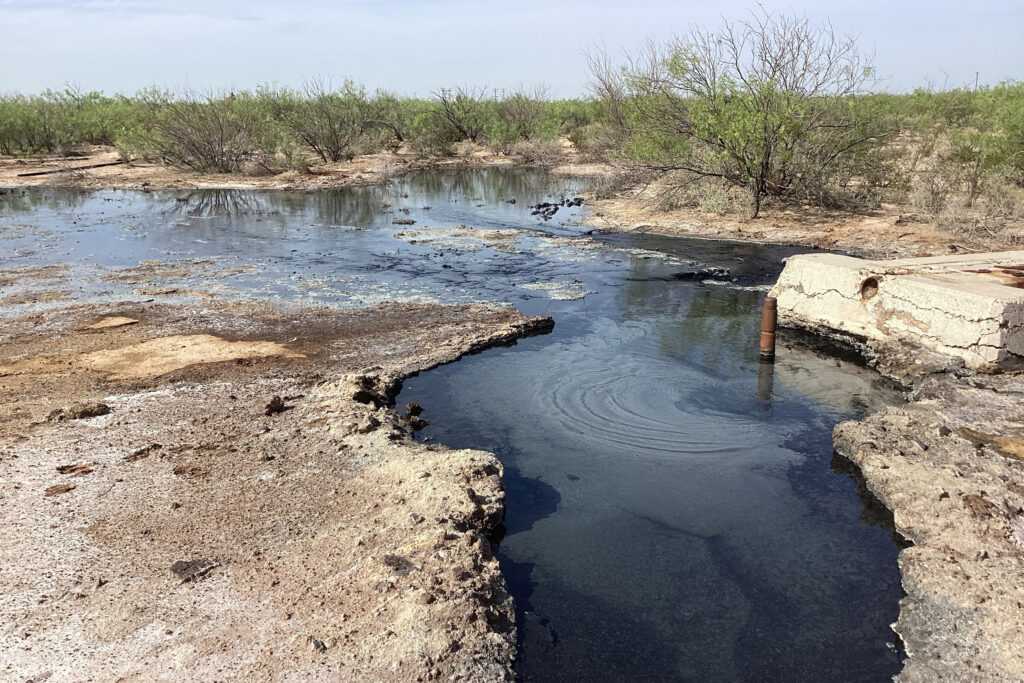Schuyler Wight, a West Texas rancher, is increasingly finding abandoned oil wells reactivating on his property. The latest occurrence involved gassy water flowing from the ground along a quarter mile of roadway that eventually drained into a pasture on his land. This is part of an ongoing series of mysterious water occurrences in the Permian Basin, the nation’s most productive oil field, that have yet to be explained by regulators.
In previous years, similar instances have been reported in the area. In 2022, geysers erupted from wells in Crane County and on the Antina Cattle Ranch. Additionally, a large pond of gassy groundwater, now known as Boehmer Lake, has become a permanent fixture. The Texas Railroad Commission, which oversees oilfields, has not been able to identify the cause of these incidents but is working on an investigation.
The phenomenon of leaky old wells is nothing new. Many of these wells in West Texas were built during World War II and have undergone significant wear and tear over the years. The mystery lies in what is causing such large volumes of water to surface.
Hawk Dunlap, an oilfield firefighter who surveyed the recent blowout on Wight’s ranch, is puzzled by the situation. While local ranchers have to utilize pumps to draw water from their wells, the water seems to be surfacing from oil wells on its own. Dunlap suspects that the injection of fracking wastewater might be contributing to this unexplained phenomenon.
Millions of gallons of produced water, a byproduct of fracking that contains a cocktail of chemical lubricants and hazardous compounds, are pumped underground for disposal every day in West Texas. While this water is supposed to stay in the wells and rock formations indefinitely, geological science is not exact, and pressure changes could occur if the water were to escape.
The disposal of produced water has increased dramatically in the past decade, adding pressure underground that must be released somehow. Dominic DiGiulio, an environmental consultant and geoscientist, believes that if there’s a well penetration, the water will move freely up that well penetration.
Typically, old oil wells are more likely to leak gas than water. However, Dwayne Purvis, founder of Purvis Energy Advisors, states that water leakage can occur under certain unique conditions, citing examples from California and Pennsylvania.
Meanwhile, on Wight’s ranch, the latest blowout continues to flow, producing moderately salty water. The salt contaminates the soil rendering it infertile, a problem Wight can do little to remedy.
Original Story at insideclimatenews.org
